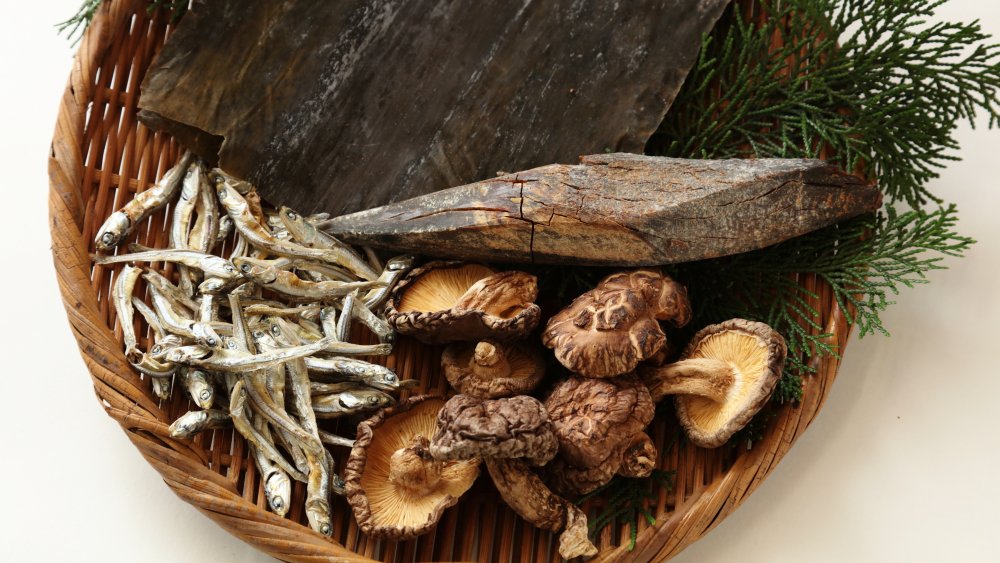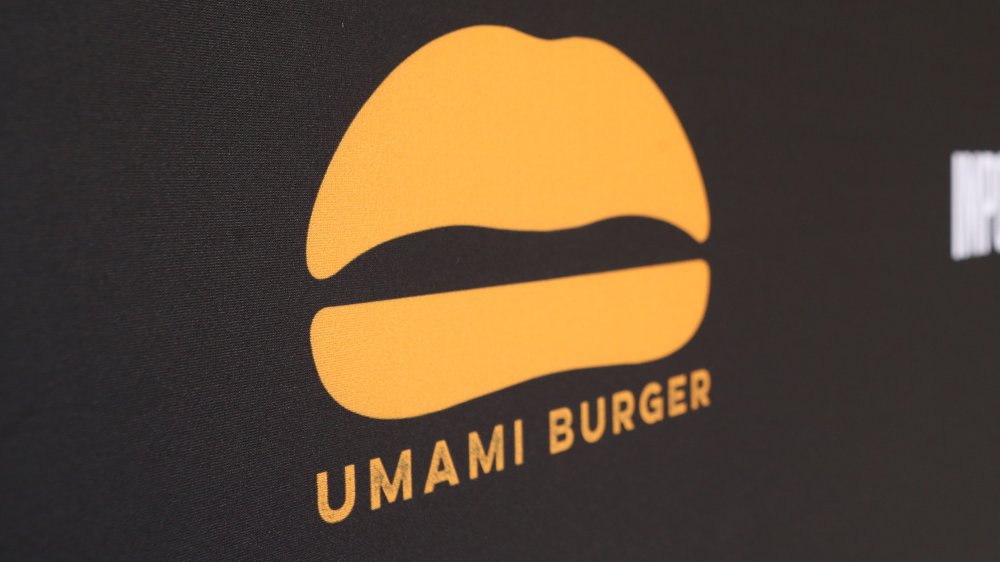Why The Umami Trend Is Here To Stay
Many people will tell you that there are five flavors: sweet, bitter, salty, sour, and umami (via Food 52). While it might be easy to come up with examples for a majority of those descriptors, the concept of umami is slightly more difficult for people to put their finger on, although it's been in use in the English context for more than 40 years (via The New Yorker).
Umami is a Japanese word that is typically translated to "savoriness." If we're speaking about it on a scientific level, umami is the taste of glutamates. On a more practical level, it's the deep, earthy, meaty flavor found in foods like Parmesan cheese, mushrooms, anchovies, and soy sauce.
It was discovered by a Japanese scientist in the 1900s who was able to isolate the compound responsible for the flavor in dashi (a stock made of bonito flakes and kelp). The compound turned out to be glutamic acid which he was able to produce in a crystalline form by letting the water in the kelp evaporate, leaving crystals of the glutamic acid behind on the seaweed. This crystalline form, produced on the commercial scale, became known as the much-maligned MSG, or monosodium glutamate.
Capitalizing on umami
Because the flavor has a Japanese name, it's widely associated with Japan; however, the use of dishes and condiments such as fermented fish sauces goes all the way back to Ancient Rome (via The Spruce Eats).
Given the fact that many scientists believe that the sensation of umami is addictive and we crave it, a number of entrepreneurial chefs have recently tied to cash in on the umami craze (via Vox). Adam Fleischman, owner of the restaurant chain Umami Burger tried to come up with a way to create a burger that featured notable umami flavors. Instead of using ripe tomatoes, he used tomatoes baked in a soy-based sauce. Instead of cheddar, the umami burger features Parmesan, truffle-infused ketchup, and mushrooms. The chain has been a runaway success with well over a dozen locations scattered across Chicago, New York, California, Mexico, Japan, and the Bahamas (via Umami Burger).

